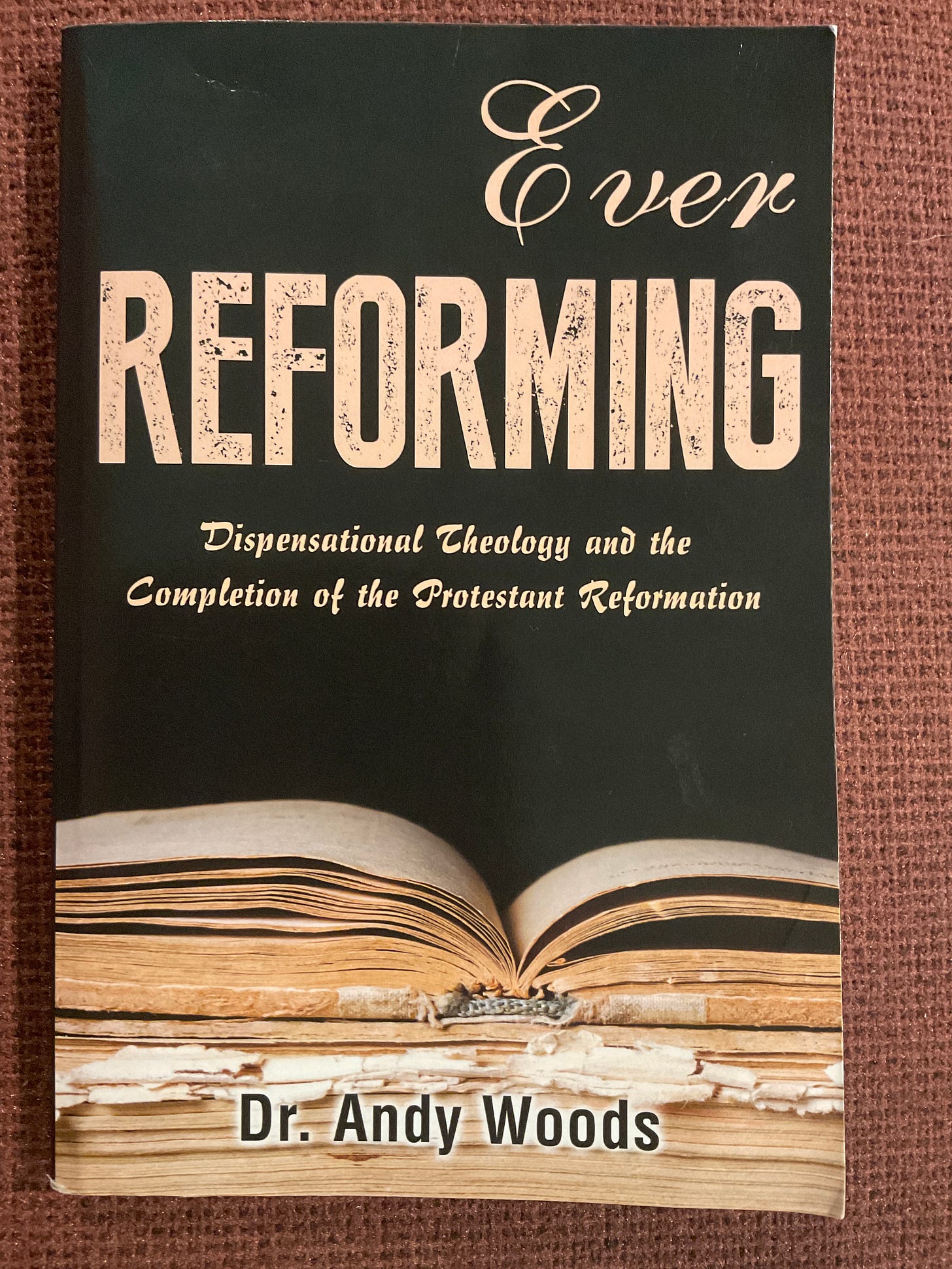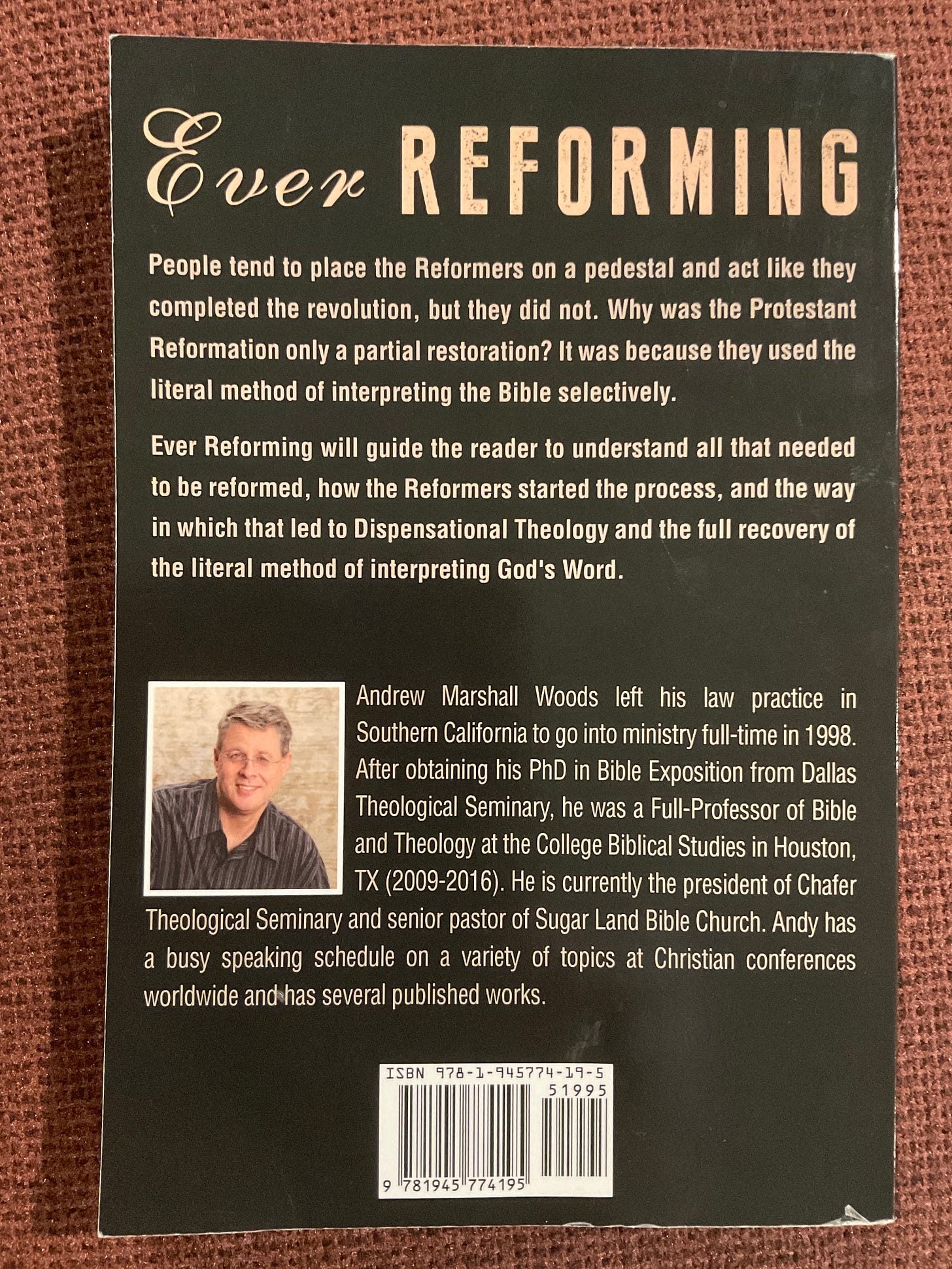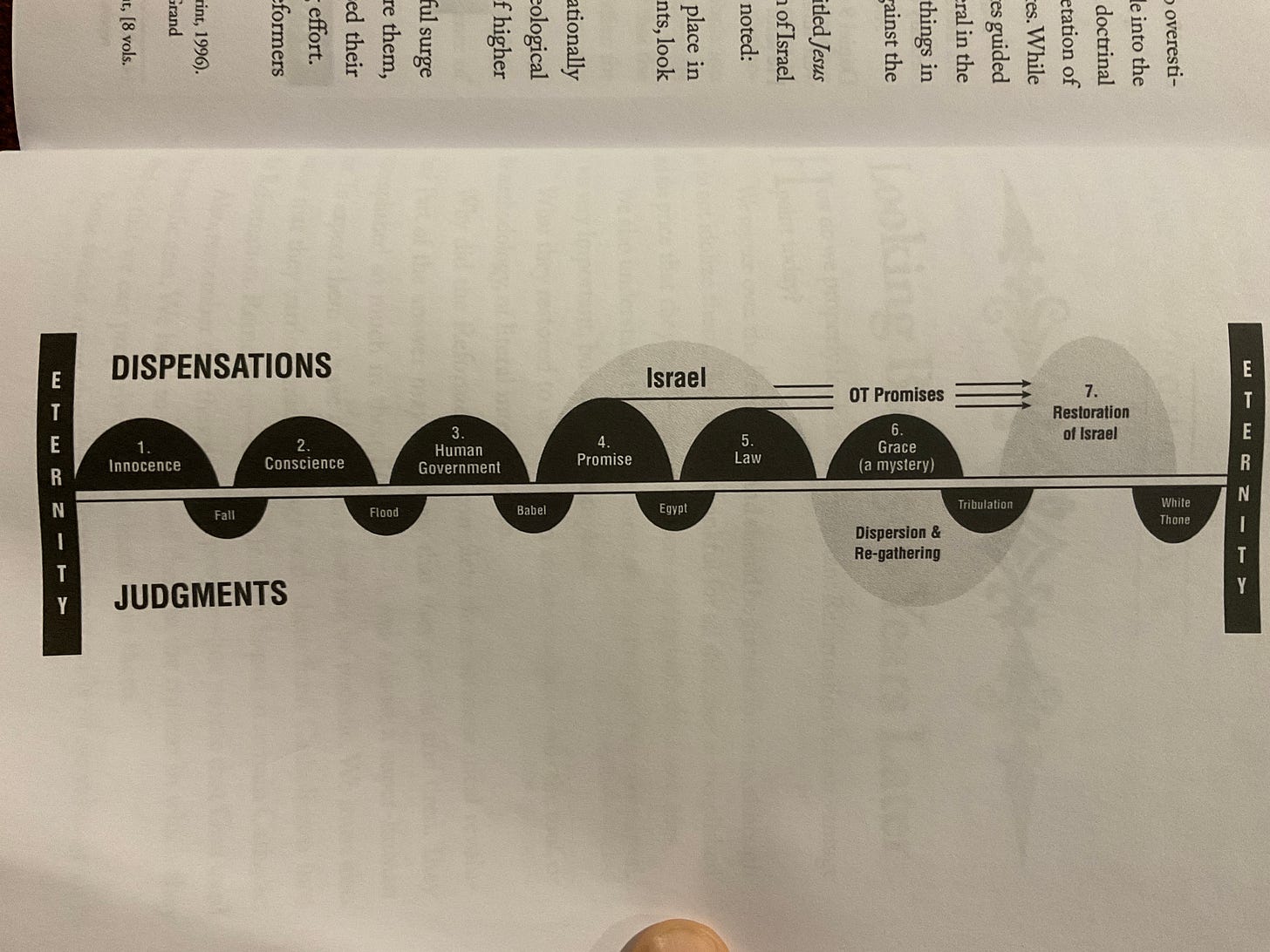Book Review: “Ever Reforming: Dispensational Theology and the Completion of the Protestant Reformation” by Dr. Andy Woods
If we went for a coffee, maybe we could talk about this book…
How did I get it?
It came in the same package that “Falling Away” did a few months ago. My friend Rob, who sent me that one, sent me this one at the same time.
It sat on my shelf for awhile, and then I listened to Albert Mohler interview Daniel Hummel on his podcast “Thinking in Public.” They were discussing Daniel’s new book: “The Rise and Fall of Dispensationalism.” I didn’t know Dispensationalism had fallen! I was interested in the topic afresh, and decided to read about it.
What is the book about?
Dr. Woods takes his reader on a journey through Christian history starting in the era just after the apostles where the activity centered around the city of Antioch. He shows how from that first century up to the time of Augustine the prevalent belief surrounding the End Times was that Jesus was coming back at any moment to rule and reign on the earth for a thousand years. They believed they were living before the thousand year reign. That belief is called pre-millennialism. “Pre” means before. “Millennial” is a thousand years. It is also called “chiliasm” because the Greek word for thousand is “chiliasm.”
From there, Augustine and Origen come on the scene and the activity moved to Alexandria in Egypt. At near the same time, Constantine made Christianity the official religion of the empire. Things changed. Origen and Augustine were very influential in moving the understanding of the Scriptures from basic and literal to allegorical and metaphorical. They cast aside pre-millennialism (or chiliasm) in favour of “a-millennialism” saying that there was no literal thousand years at all. Jesus could come at any time, but He would rule forever in heaven. There would be no earthly kingdom. That continued through the “Dark Ages” until the Reformation.
It was in the Reformation that Martin Luther and John Calvin reintroduced a literal interpretation of the Scriptures back into society. Dr. Woods shows how that method of interpretation reversed the progress of many erroneous doctrines, bringing life and freedom to people and Western Society. He goes on to argue that the Reformers in their lifetimes weren’t able to continue to bring that literal interpretation to the rest of the doctrines. He provides many examples of passages that could and should only be interpreted literally.
At one point he includes a quote from Martin Luther about creation. This is interesting because it’s an instance where Luther used the literal interpretation method for something other than salvation. He writes:
“We know from Moses that the world was not in existence before 6,000 years ago… He calls “a spade a spade,” i.e., he employs the terms ‘day’ and ‘evening’ without allegory, just as we customarily do… We assert that Moses spoke in the literal sense, not allegorically or figuratively, i.e., that the world with all its creatures, was created within six days, as the words read. If we do not comprehend the reason for this, let us remain pupils and leave the job of the teacher to the Holy Spirit.” (Italics added - page 92, quote from “Lectures on Genesis 1-5” in Luther’s Works)
His point is that “Dispensationalism” is the natural result of what the Reformers began.
Wrapped on both sides of this history and argument is a celebration of the 500th year since the Reformation. Dr. Woods is forceful in lauding the profound impact that they had on history and the world.
What did I think?
Well, I’m a Dispensationalist! And, not just that, I’m a dispensationalist with tongues!
So, I enjoyed this book. It wasn’t long. It’s 164 pages and the type is large. I thought Dr. Woods did a fantastic job of surveying history, the issues and making a compelling argument for literal interpretation (hermeneutic) and for a pre-millennial, pre-tribulational view of the return of Christ.
This is a helpful introduction to the whole topic. My friend Rob, is really my friend.
Conclusion:
I could see a certain teenaged boy reading this book, understanding its argument, appreciating its history and making him able to engage the conversation. I’m planning to hand it to him.
Now, I do have a couple of friends that have left the dispensationalist view. I don’t understand why. One of them tried to explain it to me, but we were at the height of the craziness of Covid and I wasn’t able to engage the conversation enough to understand his reasons.
Maybe this post will help? Maybe you could fill me in on why Dispensationalism has fallen?
Soon!
andy




